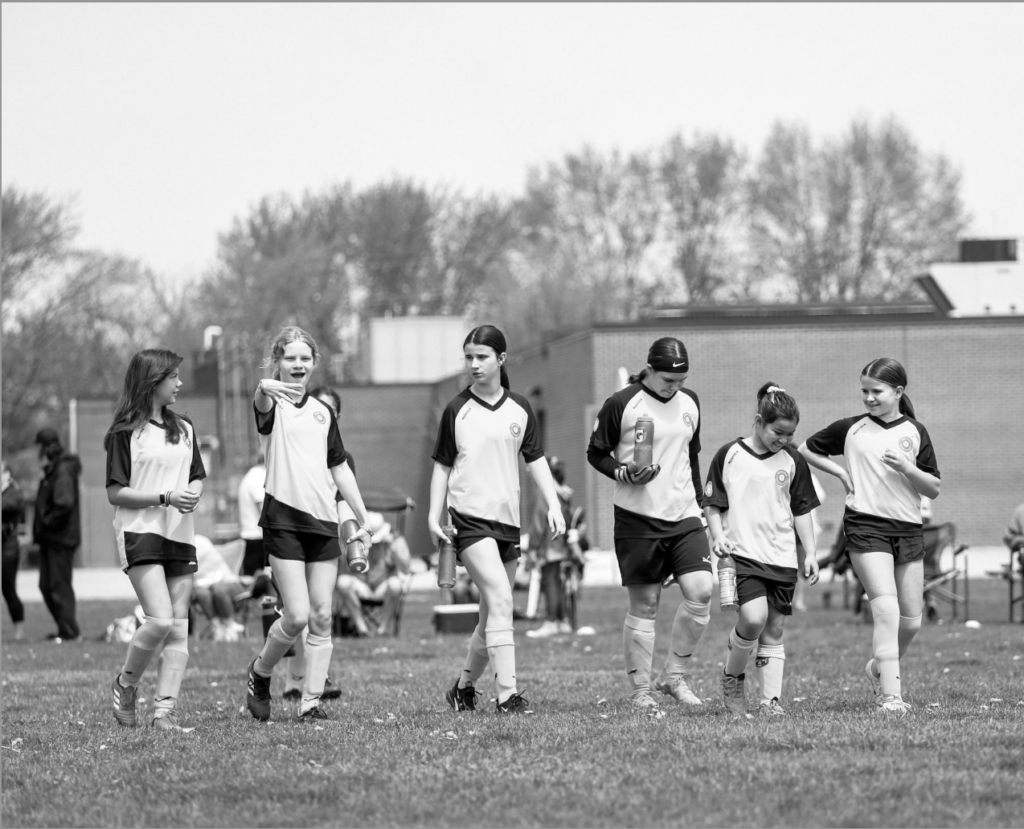As we have seen in the prior lessons there are a number of reasons why kicking the ball away affects the individual player and slows down development. Below we examine what the overall affects are on the team when the ball is just kicked away.

Team has to work hard to get the ball back: Losing possession due to the ball being kicked away means the team has to expend more energy and effort to regain the ball. This can be physically and mentally exhausting, as players must consistently press the opposition, chase loose balls, and fight to regain possession. This additional work can lead to fatigue and decreased performance over the course of the game.
No opportunity to pass or share the ball:
When players habitually kick the ball away, they limit their teammates’ chances to receive, control, and pass the ball. This not only curtails individual development but also prevents the team from refining its passing game, which is essential for maintaining possession, moving the ball effectively, and breaking down opposition defences.
Puts pressure on the defence:
Frequently kicking the ball away gives the opposition more possession and scoring opportunities. As a result, the team’s defence is placed under increased pressure to contain the opposition’s attack, increasing the likelihood of conceding goals and leading to potential defensive errors.
Reinforces an unattractive style of play:
Teams that continuously kick the ball away develop a reputation for playing a less skillful, less attractive style of soccer. This unappealing playstyle can be demotivating for players, detrimental to team identity, and less enjoyable for fans to watch.
Can’t score when you don’t have the ball:
When a player frequently kicks the ball away, their team loses possession and consequently, scoring opportunities are diminished. Maintaining possession is critical for creating goal-scoring chances, as it allows the team to exploit spaces, create overlaps, and build attacking moves. Kicking the ball away limits the team’s ability to generate offensive threats and apply pressure on the opposition.
No opportunity to practice teamwork or play: Consistently kicking the ball away deprives the team of opportunities to develop and execute coordinated plays and strategies. As soccer relies on effective teamwork and understanding between players, such an approach can hinder the development of team chemistry and communication. A lack of practice in these areas can make it difficult for the team to function cohesively and efficiently during games.
Inconsistent rhythm and tempo:
Teams that constantly kick the ball away struggle to establish a consistent rhythm and tempo during games. This erratic playstyle can make it challenging to create and sustain momentum, which is crucial for dictating the pace of the game and controlling the flow of play.
Negative impact on team morale:
A lack of possession, scoring chances, and effective teamwork can negatively affect the team’s morale and confidence. When players are not contributing positively to the team’s play, frustration and disappointment can set in, potentially leading to poor on-field performances and strained relationships among teammates.